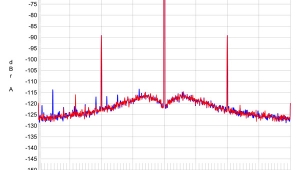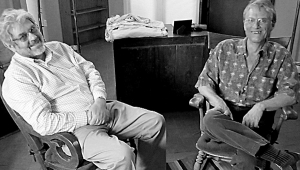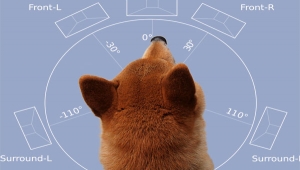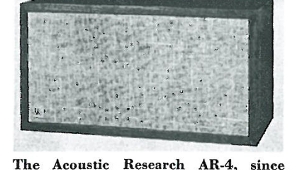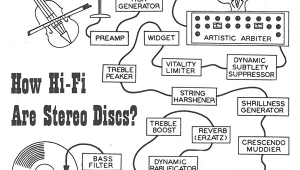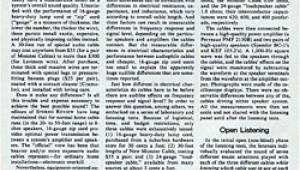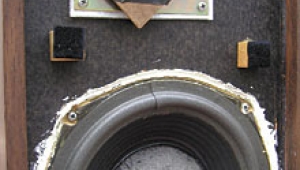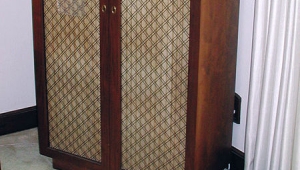| Columns Retired Columns & Blogs |
How Hi-Fi are Stereo Discs? Page 3
This "systems" concept reached its culmination with RCA Victor's "Dynagroove" system, which considered everything—from the musical score to the ambient noise in the listener's home—in terms of its effect on the ultimate musical "projection." This vast amount of data was poured into the hopper, as it were, and out came a formula for producing the optimum "projection of the musical ideas" under all these varied and conflicting conditions. The recording director consults with the conductor, to see whether they agree about the meaning of the music, but he is, in effect, the ultimate artistic arbiter of the music. This leaves the conductor and the musicians in the position of being little more than production-line workers, cranking out the raw materials from which the music is ultimately shaped by the computers, the recording director, and his banks of complex manual controls.
The only trouble with this "systems" approach is that really good playback systems, which are capable of reproducing virtually everything on a disc, will show up every one of these built-in "compensations" to whatever degree they were added. Lacking its own built-in deficiencies, it will reproduce every bit of treble boost, bass boost, and shift in overall instrumental emphasis, and since each of these leftover "enhancements" represents something that would not be heard in a concert hall, the unnaturalness of the reproduced sound will be heard in a direct relationship to the quality of the system. The audio perfectionist would, it seems, do better to ditch his costly component system and buy an "average" console phonograph (whatever that might be), were it not for the fact that the resulting sound would still not be nearly as good as is obtainable from a topnotch system with ungimmicked program material.
Compensatory recording can give an illusion of wider frequency and dynamic range and improved sonic detail, but the illusion is never as convincing to the ear as the actuality. Besides, no amount of compensation on a disc can offset the high IM distortion, the poor transient response, and the generally muddy sound of a typical console phonograph. The basic situation hasn't changed from what it was 20 years ago: the most realistic sound is still obtained from the best playback equipment, if the recordings themselves contain the most natural sound that the manufacturers can get onto them.
The concept of concert-hall realism—the sound of an orchestra as heard in a concert hall—is necessary to provide a standard for evaluating reproduced sound. But the "best seat in the house" may still not be as good a listening location, from the standpoint of musical enjoyment or understanding, as, say, a spot 18' in the air above Seat 46, Row D. Some concert halls don't have a passably good listening seat in the whole building, so should the recording engineer use the best seats in these houses as his sound standard? We should hope not. Yet once he decides that no seat in a given house is good enough, he is entirely justified in trying to create the illusion of listening from a "perfect" seat, which doesn't exist anywhere. And, once again, we're at the mercy of the recording director's own concept of what the music listener should hear from the orchestra.
Obviously we can't ask that the recording directors and engineers be abolished. Their judgment is needed in such matters as mike placement and instrumental balances, and they are expected to do as good a job as they can. What is necessary, though, if we are ever to have recordings that do justice to good reproducers, is a return to the old idea that the ultimate quality of the sound in the home should be the responsibility of the consumer, not of the record manufacturer.
The RIAA standard equalization curve was not intended as a standard for disc recording; it still left a manufacturer all the leeway he wanted for boosting treble or "adjusting" separation or compressing dynamics. But—and this is the crux of the whole problem—it did specify that every disc was to be made for playback via the standard RIAA curve.
The assumption was that, as long as a disc was reproduced on a system providing accurate RIAA equalization (and this would include the "equalization" effects of speakers, pickups, etc.), it would sound the way the manufacturer intended it to sound. It was up to the manufacturer to equip himself with the finest playback equipment he could obtain, so that he could evaluate what was going onto his discs, and it was left to the consumer to choose playback equipment that would re-create as much of the inherent quality of the disc as he cared to hear. It was this philosophy that gave impetus to the whole high-fidelity movement, and it is the death of this philosophy—the abandonment of the high-fidelity listener in favor of his know-nothing, care-nothing brethren—that could well flush the whole high-fidelity business down the drain.
Increasing numbers of high-fidelity perfectionists complain that they are "confused" by the plethora of new components, conflicting claims, noncommittal equipment reports, and recurrent disappointments with purchases of newer, supposedly better components for their systems. No wonder they're confused! Every time they improve their systems, they uncover more and more of the sonic "enhancements" in their program material. The sound is cleaner and more transparent, yet it seems to become less and less natural, until they happen to listen to one of those rare FM broadcasts of ungimmicked tapes or discs...
It isn't the state of the recording art that's the stumbling block, it's the art of recording. It must, of course, be an art, but if we are to preserve any semblance of sanity in the high-fidelity field, the recording companies are going to have to stop trying to assume responsibility for the buyer's refusal to equip himself with half-decent equipment. Recordings must be evaluated in terms of how they will sound on the best available equipment, and should be made to sound as realistic as possible on such systems, because as long as better systems yield worse sound, there is not going to be any incentive for advancing the audio art.
If a particular record manufacturer feels better qualified to interpret a piece of music than the conductor and his orchestra, this is his privilege. But whatever he chooses to do to the sound, he should judge the result in terms of how it will sound on some statistically average phonograph.
Record companies that have sufficiently strong feelings about the limitations of the average phonograph to continue treading a path of placation could make available at least a limited number of "deluxe" recordings for the person who has paid through the nose for good equipment and wants to hear really good sound from it. Most of us would gladly pay a dollar or so extra for discs or tapes that we could trust to be ungimmicked and worthy of the quality of our systems, yet these discs would cost less to make than the average commercial products. The orchestra would already have been paid for (for the "main" recording session), and the deluxe recording would not need the constant ministrations of a host of dial twisters and high-salaried "musical technicians" imposing their judgments on the music. Good microphones properly placed, judiciously mixed, and then left strictly alone for the entire recording session would often yield just the kind of recordings we're after—ones in which the conductor and the musicians would determine the accents and shadings in the musical sound...
High-fidelity perfectionists are few and far between, but if we make our demands known loudly enough and often enough, and explain to our less knowledgeable friends how they're being bilked of fidelity on the records they buy, the major record companies are going to start taking note and, eventually, doing something about the situation. After all, they're giving us the kind of records they are because they think they have to do this to sell them. If they thought really top-quality discs would sell, that's what we'd get. It's our job, as potential buyers, to convince them. Nobody else will.—J. Gordon Holt
- Log in or register to post comments

